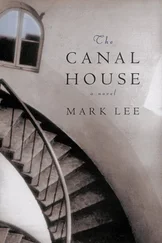Mr Ackroyd’s Blake is much more reader-friendly than his Dickens . This time he doesn’t make what have been called his Hitchcock-like appearances in the text, but he is there at your elbow, a brilliant guide and interpreter. Blake, he says, ‘is a “difficult” poet only if we decide to make him so,’ and he fearlessly expounds the prophetic books and the technique of their illustrations, which conjure up in dazzling orange, green, violet, and crimson ‘a wholly original religious landscape.’
Like all his predecessors, Mr Ackroyd is left with the (possibly not true) ‘familiar anecdotes.’ Did Thomas Butts (a respectable civil servant) really find the Blakes sitting naked, in imitation of Adam and Eve, in their back garden? Did Blake really encounter the Devil on his way down to the coal cellar? Mr Ackroyd tells the stories as they come. Blake, like Yeats, mythologized (but never falsified) himself, and the best thing is to accept the myth. More important to Mr Ackroyd is the re-creation of the poet as a great Londoner—part of his long-term biography of his home city. He invites us to accompany Blake, in his knee breeches and wide-brimmed hat, on one of his long walks through the streets. This is not in itself a new idea. Stanley Gardner, in 1968, was one of the first to study the county survey of late-eighteenth-century London inch by inch and to suggest (for example) that Blake’s Valley of Innocence must have been the green fields of Wimbledon, where orphans at that time were put out to nurse. Mr Gardner didn’t supply his readers with a map, nor does Mr Ackroyd, but he is immensely more detailed. ‘A woman filling her kettle at the neighbourhood pump, the washing hanging out from poles…the bird cages and pots of flowers on the windowsills, the shabby man standing on a corner with a sign in his hat saying “Out of Employ,” while another sells toy windmills, the dogs, the cripples, the boys with hoops.’ These things, of course, aren’t what William Blake saw: he saw walls reddened with soldiers’ blood or blackened with the soot that killed off young chimney sweeps, while a single bird cage was for him enough to set heaven in a rage.
But this is emphatically not a political biography. Its object isn’t to enlist Blake as a primitive Marxist but to show him as an individual of genius, awkward to deal with, sometimes nervous, often contradictory, but incorruptible. Blake himself believed there were eternal ‘states’ of rage and desire, even of selfhood, through which a man passes, keeping his soul intact. ‘He knew precisely what he saw,’ says Mr Ackroyd affectionately, ‘and with the sturdy obstinacy of his London stock he refused to be bullied or dissuaded.’
Blake was unaccountably true, indeed, even to his strangest prophecies. He had promised his wife that he would never leave her, and after his death he came back, she said, for several hours a day, sat down in his usual chair, and talked to her.
New York Times Book Review, 1996
SAMUEL TAYLOR COLERIDGE Talking Through the Darkness
Coleridge: Darker Reflections, 1804—1834 , by Richard Holmes
Ten years ago, in 1989, Richard Holmes left Coleridge under the stars on an April night in Portsmouth, starting out, in one of the many impulsive moves of his life, for Malta. He asked us to imagine how it would have been if the poet had died on the voyage, as he and all his friends clearly expected. He would then have been remembered as the author of The Rime of the Ancient Mariner , a brilliant young Romantic early extinguished. But he didn’t die, and the next three decades, Holmes told us, would be more fascinating than anything that had gone before. This second volume, he said, would be subtitled ‘Later Reflections,’ but it has turned out to be ‘Darker Reflections.’ Possibly he himself has changed a little in this time. In any case, ‘darker’ suggests the water imagery that haunted Coleridge even more closely as his life flowed to an end. Holmes hoped to make him ‘leap out of these pages—brilliant, animated, endlessly provoking—and invade your imagination (as he has done mine).’ Certainly, in his superb second volume, he has succeeded in this.
He also has to show his subject as frequently sunk in melancholy, constipated, a heavy drinker and addicted (as he had been since the winter of 1801) to opium. Coleridge went to Malta in 1804 partly on account of his health, partly to escape from his marriage and perhaps from his long-term infatuation with Wordsworth’s sister-in-law Sara Hutchinson, partly—since Malta was a wartime base for the British fleet—in hope of getting some kind of administrative post. He did get employment, as diplomatic secretary to the Governor, for whom he wrote what are now called position papers on Britain’s strategic situation in the Mediterranean. As a hardened journalist, quick to seize the main points of any situation, Coleridge, as long as he was sober, had no difficulty with the work.
On his return to England he made it clear that he was not coming back to his wife, although he always did his erratic best to support her and their three children. Lecturing seemed the ideal occupation for the great talker who rarely paused for an answer, and he lectured, on and off, for almost the whole of the rest of his life—at Bristol (where he was an hour late for his first appearance, having been secured by his friends and deposited on the platform), at the Royal Institution (where he collapsed into opium and missed five engagements), at the Philosophical Institution, at the Surrey Institution, at the Crown and Anchor, at the Royal Society of Literature (on Prometheus). Organizers were always ready to book him, audiences almost always ready to hear him. What did he look like? Like a wildly dishevelled Dissenting minister. What did he sound like? Sometimes he was unintelligible, but when he caught fire (as for instance in his celebrated lecture on Hamlet ) it was agreed that he talked as no man had talked before him.
In 1809 he was taken with the idea of writing and publishing his own journal, The Friend . This, he thought, could be done from the Lake District. He stayed there at first with Wordsworth, whose household, with its dutiful womenfolk, was always under good control. But The Friend lasted for only twenty-seven numbers.
It was at this point, when Wordsworth saw little or no hope of his recovery, that Coleridge absconded to London and began what started as a fortnight’s stay (it turned into six years) with the Morgans, whom he had known in Bristol. John Morgan took down whatever Coleridge could be persuaded to dictate; his wife and daughter put in order Coleridge’s papers and notebooks. In January 1813 a play, which he had written many years earlier and now renamed Remorse , was put on at the Drury Lane Theatre. It was an unexpected success, and he received £400 (although in a few months he was penniless). Meanwhile, news came that the Wordsworths’ dearly loved little son Tom had died. Coleridge dithered, delayed, and did not go to Grasmere. Can he be forgiven? On the other hand, during one of his worst periods of opium overdose and suicidal depression he rallied himself, Heaven knows how, to write five articles in praise of the paintings of his old friend Washington Allston. His manic energy and generosity have to be set against his recurrent paralysis of the will, when he could be becalmed like the Mariner on his stagnant sea.
Remorse had been put on partly at the request of Lord Byron, who, however impatient he might be with Coleridge’s metaphysics (‘I wish he would explain his explanation’), shared the impulse felt by so many that he was worth saving at all costs. Charles Lamb, who had been at school with him at Christ’s Hospital, continued a faithful friend; so did the publisher Joseph Cottle, who attributed Coleridge’s ills not to alcohol and opium but to satanic possession; so did the young De Quincey and Daniel Stuart, the sage editor of The Courier . He had, of course, plenty of unsparing enemies who couldn’t forgive him for deserting the radical cause. But for forty disorganized years Coleridge was never at a loss for someone to give him a home. Would the twentieth or the twenty-first century take him in so generously?
Читать дальше












